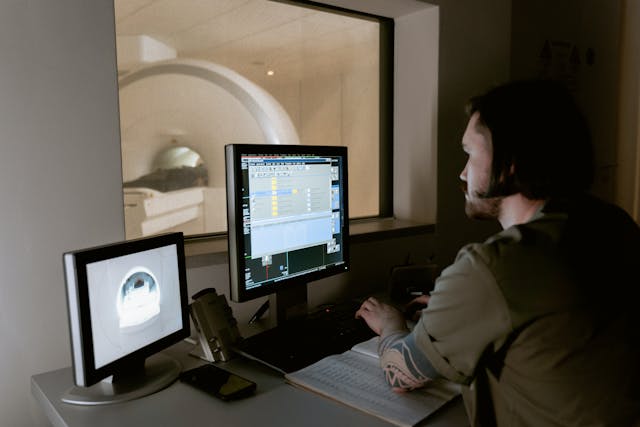
The Future Of Nursing: How Advanced Degrees Are Shaping Patient Care
Nursing has always been at the heart of healthcare, with nurses playing a crucial role in patient care, advocacy, and medical decision-making. As healthcare systems evolve, the demands on nursing professionals continue to grow. The increasing complexity of patient conditions, advancements in medical technology, and a shift towards preventative and personalized care require nurses to have higher levels of expertise.
In response, many nurses are pursuing advanced degrees to enhance their knowledge and skills. These degrees not only improve patient outcomes but also contribute to leadership roles, policy-making, and research in healthcare.
With the rise of online education, pursuing advanced nursing qualifications has become more accessible than ever. This shift is reshaping the profession, allowing nurses to take on expanded roles and directly impact the future of patient care.
Expanding Career Opportunities Through Online Education
The pursuit of higher education in nursing is more feasible today due to the availability of flexible online programs. Many nurses looking to advance their careers seek the cheapest online DNP programs to obtain a terminal degree in nursing without the financial burden associated with traditional education routes. These programs provide an opportunity for working professionals to further their education while maintaining their existing job roles. The flexibility of online courses allows nurses to balance their academic pursuits with their professional and personal responsibilities, ensuring they can continue delivering quality patient care while expanding their expertise.
By making advanced education more accessible, online programs are helping to bridge the gap between current nursing practices and the increasing demands of modern healthcare. As a result, more nurses are equipped with the knowledge and leadership skills required to improve patient outcomes, implement evidence-based practices, and influence healthcare policies.
Advanced Nursing Education And Patient Outcomes
One of the most significant impacts of higher education in nursing is its direct correlation with improved patient care. Nurses with advanced qualifications bring deeper clinical expertise, critical thinking skills, and leadership capabilities, all of which contribute to better patient outcomes. Studies have consistently shown that patients in healthcare settings with highly educated nursing staff experience lower mortality rates, fewer medical errors, and higher satisfaction levels.
With a greater understanding of disease processes, treatment protocols, and emerging medical technologies, highly educated nurses can provide more precise and effective care. They also play a pivotal role in implementing evidence-based practices that lead to improved recovery times and better overall patient health. As nursing education continues to advance, the healthcare industry benefits from a workforce that is better prepared to handle complex medical cases and provide more personalized care.
Leadership And Decision-Making In Healthcare
Nurses with advanced degrees are not just improving bedside care. They are also stepping into leadership roles that shape healthcare policies and decision-making processes. As nursing professionals gain higher qualifications, they become more involved in hospital administration, healthcare policy development, and advocacy efforts.
With a strong foundation in patient care, nurses who transition into leadership positions bring a unique perspective that prioritizes both clinical excellence and patient-centered care. Their insights help create policies that enhance efficiency, patient safety, and overall healthcare quality. In addition, highly educated nurses are well-positioned to take on mentorship roles, guiding the next generation of nursing professionals and ensuring that standards of care continue to rise.
Advancements In Healthcare Technology And Nursing Practice
As medical technology evolves, nursing practices must adapt to incorporate new tools and methods. The integration of artificial intelligence, telemedicine, and data analytics into healthcare requires nurses to have a deeper understanding of these advancements. With an advanced degree, nursing professionals gain the expertise to navigate complex healthcare technologies and ensure their effective implementation in clinical settings.
Telemedicine, in particular, has revolutionized patient care by allowing nurses to consult with patients remotely, monitor chronic conditions, and provide timely interventions. With proper training, nurses can utilize these technologies to expand access to care, especially in underserved areas. Additionally, advanced education enables nurses to analyze patient data effectively, allowing for early intervention and personalized treatment plans that improve long-term health outcomes.
Addressing Healthcare Disparities Through Higher Education
Healthcare disparities remain a pressing issue, with many communities experiencing unequal access to medical services. Nurses with advanced qualifications play a crucial role in addressing these disparities by advocating for policies that promote health equity. Their training equips them with the knowledge to identify systemic issues within healthcare and implement solutions that ensure all patients receive quality care, regardless of their background.
Furthermore, these nurses often take on research initiatives focused on improving healthcare accessibility. By studying patient demographics, social determinants of health, and treatment effectiveness, they contribute to a body of knowledge that informs better healthcare practices and policies. The ability to apply research findings in real-world scenarios is a valuable skill that enables nursing professionals to drive meaningful change within the healthcare system.
The Growing Demand For Highly Educated Nurses
With the global healthcare landscape becoming more complex, the demand for highly educated nurses continues to grow. Hospitals, clinics, and healthcare institutions increasingly prioritize hiring nurses with advanced degrees due to their ability to enhance patient outcomes, implement new technologies, and lead teams effectively.
Additionally, as patient populations age and chronic conditions become more prevalent, healthcare systems require nursing professionals who can manage complex medical needs. Advanced education provides nurses with the competencies necessary to handle these challenges, ensuring patients receive high-quality, comprehensive care.
The Future Of Nursing: A Profession In Evolution
Nursing is a field that continually evolves to meet the needs of patients and healthcare systems. The increasing emphasis on advanced education is shaping the future of the profession, empowering nurses with the knowledge, skills, and leadership capabilities necessary to drive positive change.
With higher qualifications, nurses can contribute to clinical advancements, healthcare policy reforms, and improved patient care standards. The integration of new medical technologies and a focus on evidence-based practices further enhance their role, making them indispensable in the modern healthcare landscape.
So, the impact of advanced nursing education on patient care and the healthcare system as a whole is undeniable. With the increasing complexity of medical conditions and the rapid advancements in healthcare technology, the need for highly educated nurses has never been greater. By pursuing higher qualifications, nurses not only enhance their clinical expertise but also take on leadership roles that influence policy, research, and patient outcomes.



